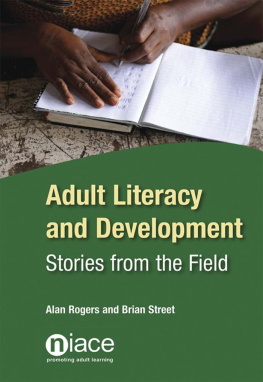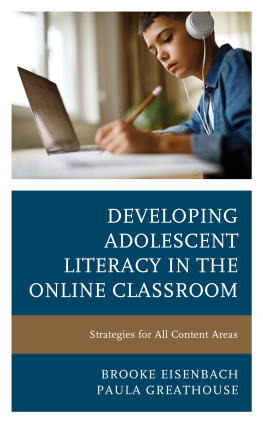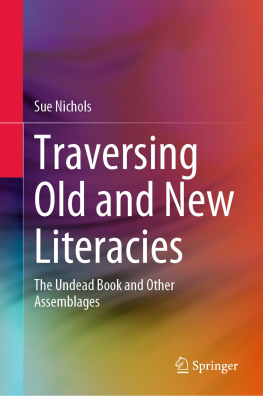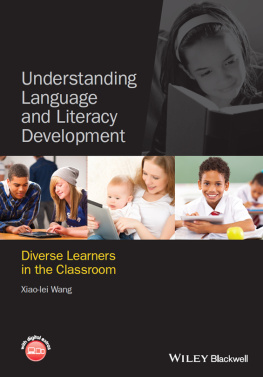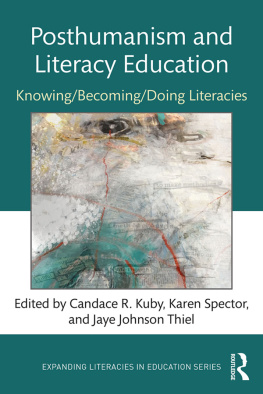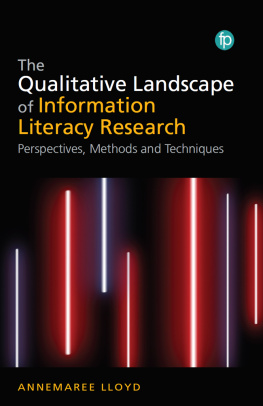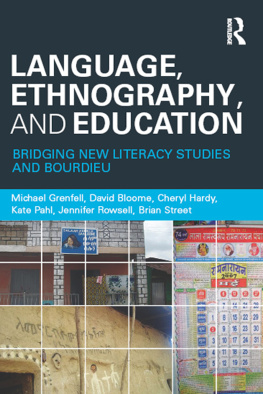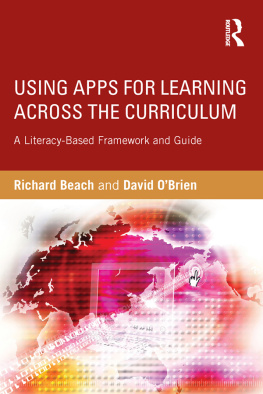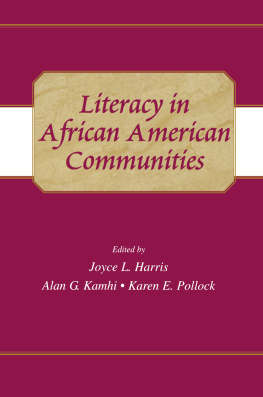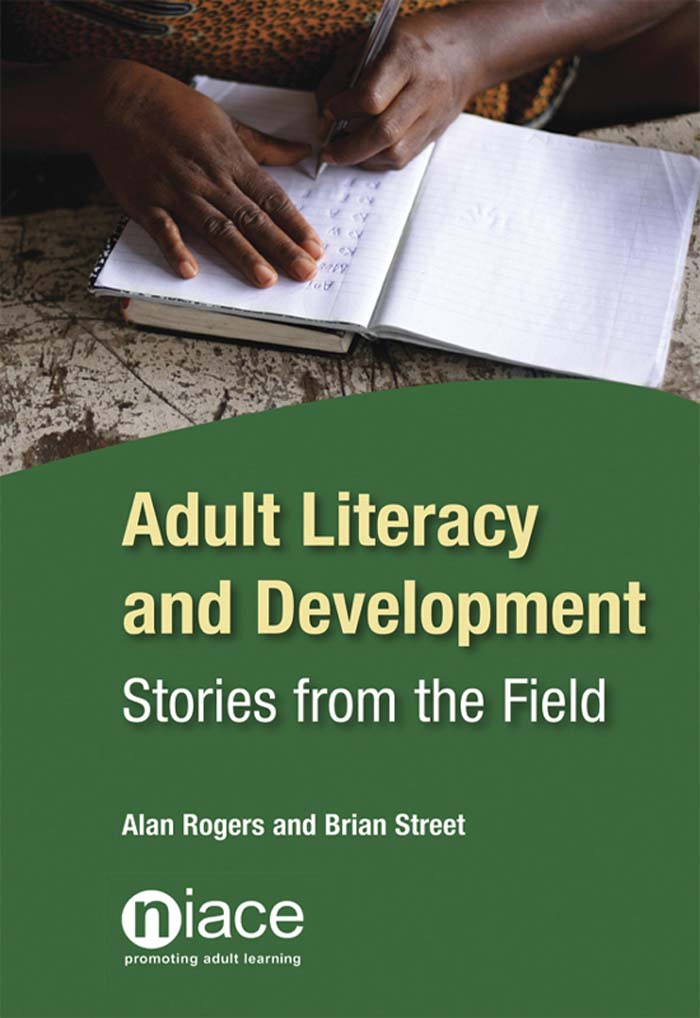Adult Literacy and Development:
Stories from the Field
Adult Literacy and Development:
Stories from the Field
Alan Rogers and Brian Street

Published by 
2012 National Institute of Adult Continuing Education
(England and Wales)
21 De Montfort Street
Leicester
LE1 7GE
Company registration no. 2603322
Charity registration no. 1002775
NIACE has a broad remit to promote lifelong learning opportunities for adults. NIACE works to develop increased participation in education and training, particularly for those who do not have easy access because of class, gender, age, race, language and culture, learning difficulties or disabilities, or insufficient financial resources.
You can find NIACE online at www.niace.org.uk
The rights of Alan Rogers and Brian Street to be identified as authors of this work has been asserted in accordance with sections 77 and 78 of the Copyright, Designs and Patents Act 1988.
All rights reserved. No reproduction, copy or transmission of this publication may be made without the written permission of the publishers, save in accordance with the provisions of the Copyright, Designs and Patents Act 1988, or under the terms of any licence permitting copying issued by the Copyright Licensing Agency.
Cataloguing in Publications Data
A CIP record for this title is available from the British Library
ISBN 978-1-86201-574-6 (print)
ISBN 978-1-86201-575-3 (PDF)
ISBN 978-1-86201-576-0 (ePub)
ISBN 978-1-86201-578-4 (Kindle)
Cover design by Book Production Services.
Designed and typeset by Avon DataSet Ltd, Bidford on Avon, Warwickshire, UK.
Printed and bound in the UK.
Contents
PART ONE
EXPLORING LITERACY IN THE FIELD
Chapter One
Some challenges
Chapter Two
A framework for analysis of field experience
Chapter Three
Ethnographic studies of literacy practices in the field
Chapter Four
Understanding literacy principles from the field
PART TWO
ADULT LITERACY LEARNING PROGRAMMES
Chapter Five
Challenges from adult literacy programmes
Chapter Six
A framework for analysis of adult literacy learning programmes
Chapter Seven
Some thoughts on adult literacy learning programmes in developing society contexts
Chapter Eight
The literacy environment texts and practices
PART THREE
SOME IMPLICATIONS FOR POLICY AND PRACTICE
Chapter Nine
Re-thinking policy and practice of adult literacy
Chapter Ten
Crossing the boundaries Learning for Empowerment Through Training in Ethnographic Research (LETTER)
Introduction
In 1988, we Brian Street (then teaching in the Anthropology Department at the University of Sussex, and later in the School of Education at Kings College London, and who subsequently became President of the British Association for Literacy and Development (BALID)) and Alan Rogers (at that time Secretary General of the Commonwealth Association for the Education and Training of Adults, Director of Education for Development, and Visiting Professor at the University of Reading) began a productive co-operation. The focal point was a programme of international seminars on Literacy in development: people, language and power. The first (Literacy and people) was held in London in International Literacy Year 1990 (EdDev, 1990), the second, on Literacy and language, at the University of Reading in 1992, and the third, on Literacy and power, in Harare in 1995. Since then, we have joined together in a number of publications and programmes overseas, including the Learning for Empowerment Through Training in Ethnographic Research (LETTER) programme in India (200204), Ethiopia (200506) and Uganda (2009 onwards), which forms the focal point for this book.
The co-operation has brought together two fields: adult education and anthropology, with particular reference to what are called developing societies. Alan worked in the training of Developmental workers in adult learning methodologies, including health and agricultural extension workers in several countries of Asia and Africa. This took him inevitably into the field of adult literacy learning programmes. Brian, from an initial engagement in Iran, including ethnographic field research and university teaching, found himself drawn more and more into different countries, exploring through contact with a number of colleagues and postgraduate students varied perceptions and practices of literacy in different contexts. The vision that we share is to see literacy and numeracy as social practices and to draw out the implications of this for adult literacy and numeracy learning programmes. The training of literacy teachers (facilitators) and the development of adult learning programmes built on our shared vision have been key elements in the joint activities.
The aim of this book is to consolidate and reflect on the experiences gained from this work and other activities over nearly 25 years, with the aim that such an account will appeal to:
- trainers of trainers;
- students (at undergraduate and postgraduate levels) in international Development programmes, as well as anthropology and education; and
- policy-makers, planners and practitioners in international, national and local aid agencies.
Although primarily based on adult learning programmes in the context of Developing societies, this publication also draws on and is relevant to adult literacy in the West, especially in the UK and USA, where we have both engaged in programmes.
This book, then, is a joint enterprise; it sets out to explore where we both stand on the themes relating to literacy and adults. We have used the metaphor of a journey we have been and continue to be on a voyage of discovery, to see what the world looks like when viewed through the ethnographic lens we have adopted of conceptualising literacy as a social practice and of understanding learning, both formal (in educational programmes) and informal (in lifelong experience), as situated and we have stories to tell that we believe help track this journey and make it relevant to others.
The contribution of the book is limited in the sense that it is not intended to be a survey of the whole field of literacy studies. After all, we have not finished the journey yet; there is more ahead and there will be more narratives to tell. Rather, it is a sharing of our experiences so far in a form of collaborative learning. And we tell the story of the journey through a number of incidents we have encountered in the course of our engagement with adult literacy and numeracy. We shall, we hope, demonstrate the value of telling case studies as our narrative proceeds. But we shall also draw upon the research and practice of others whom we have been privileged to meet along the way and who, from time to time, have joined us for part of our journey. The international community of literacy studies is a close one, with members sharing insights, challenging each other, and learning from each other, even when they disagree and have to find new ways of clarifying their thoughts.
Our different backgrounds have led us to focus on two inter-weaving strands. Brian comes from the world of anthropology, of looking at and interpreting literacy practices in daily life, everyday literacies and numeracies. Alan comes out of the world of adult education: of adult literacy learning programmes the teaching of adults, both in developing society contexts and the West.

